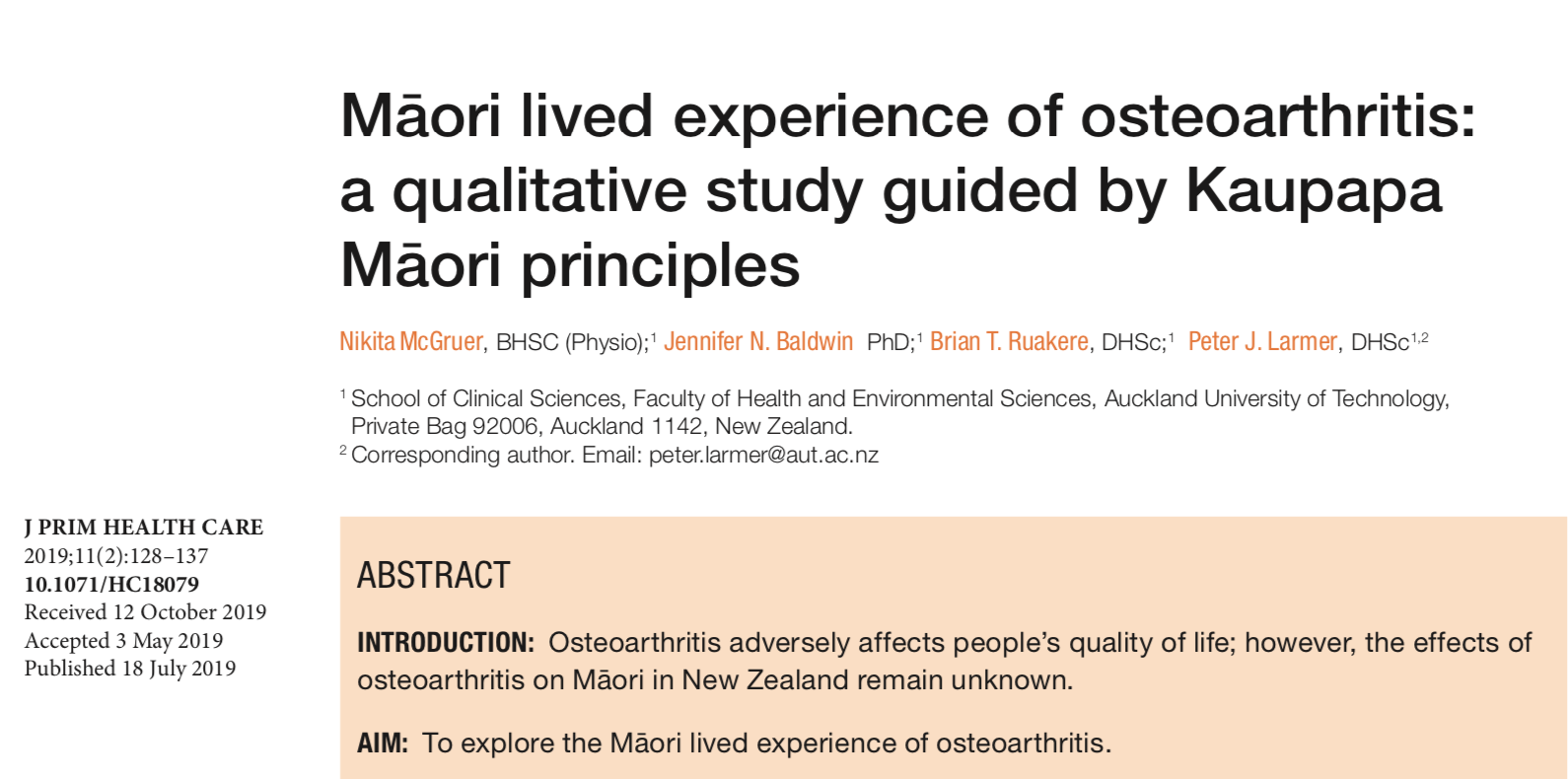Nikita McGruer, BHSC (Physio); Jennifer N. Baldwin PhD; Brian T. Ruakere, DHSc and Peter J. Larmer, DHSc
School of Clinical Sciences, Faculty of Health and Environmental Sciences, Auckland University of Technology

A recent paper published in the Journal of Primary Health Care investigates the lived experience of Māori women with osteoarthritis. Their experiences suggest that osteoarthritis adversely affects the spiritual and family wellbeing of Māori women in addition to their physical and mental health.
Seven Māori females aged 44–71 years participated. Physical manifestations of osteoarthritis, namely pain and limited daily activities, affected mental, spiritual and family wellbeing. Participants experienced whakamā (a term to describe being ashamed or embarrassed) and frustration. Cultural duties such as attending the marae were impeded, affecting spiritual wellbeing and cultural identity. Participants described drawing on the strength of their ancestors to cope with their impairments. Western medicine was commonly used, although side-effects were prominent, and few participants had received information about the condition from health professionals.
The authors recommend that culturally sensitive osteoarthritis education for Māori and their whānau is needed in primary care settings.
The centrality of spiritual wellbeing within the Māori outlook on life emerged clearly […] through the themes of āhuatanga Māori and whakapapa. These themes are unique in that they address cultural identity, a significant aspect of being Māori. Critically, women in this study described how their osteoarthritis affected their ability to participate in activities at the marae, having serious implications for their spiritual wellbeing. Provision of information about the causes and management of osteoarthritis to marae and iwi would enable Māori to implement strategies to better support their own people while also maintaining the customs and protocols of their marae.
Access to a copy of this paper is available via: https://www.publish.csiro.au/hc/pdf/HC18079